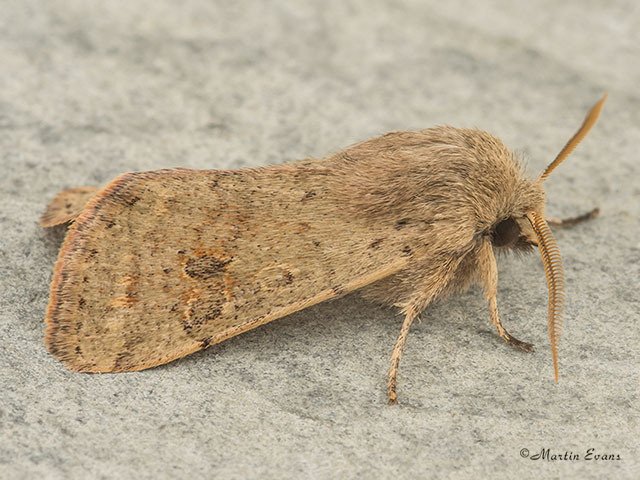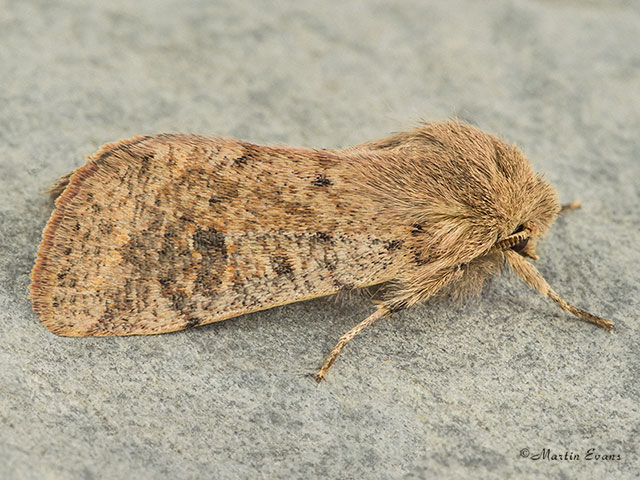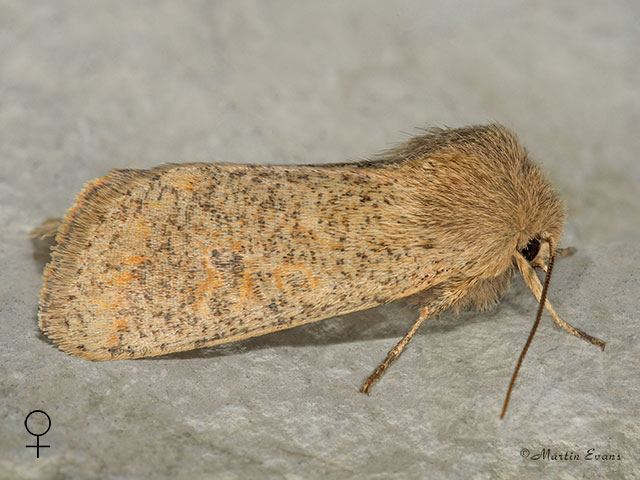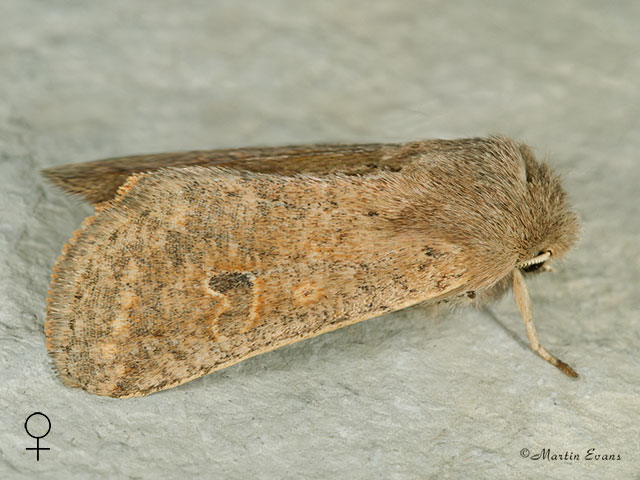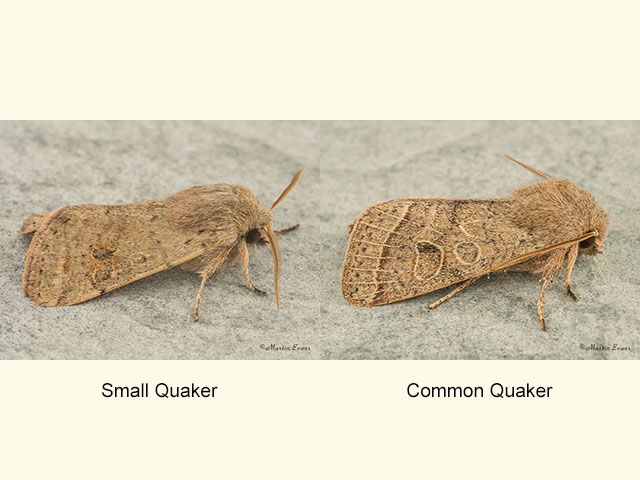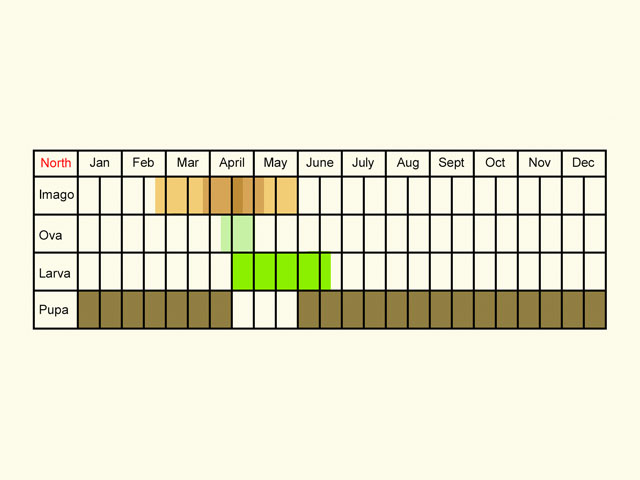Noctuidae
73.245 Small Quaker Orthosia cruda ([Denis & Schiffermüller], 1775)
Common
Similar species: Common Quaker Orthosia cerasi is on average larger (13 to 17mm), has a broader, more rounded kidney mark and a larger oval, plus a more distinct outer cross line.
Forewing: 12 to 15mm
Habitats: Deciduous woodland, scrub, wooded heathland, hedgerows and gardens.
Habits: The moth feeds at sallow blossom and comes to sugar and light.
Foodplant: The nocturnal larva feeds on oaks, sallows, Hazel, Downy Birch, Sweet Chestnut, Field Maple, Blackthorn, Hawthorn, Honeysuckle and other deciduous trees. It hides amongst spun leaves in the day. It pupates in a cocoon under the soil, resting inside the pupal case as a fully formed adult until it emerges in the spring.
